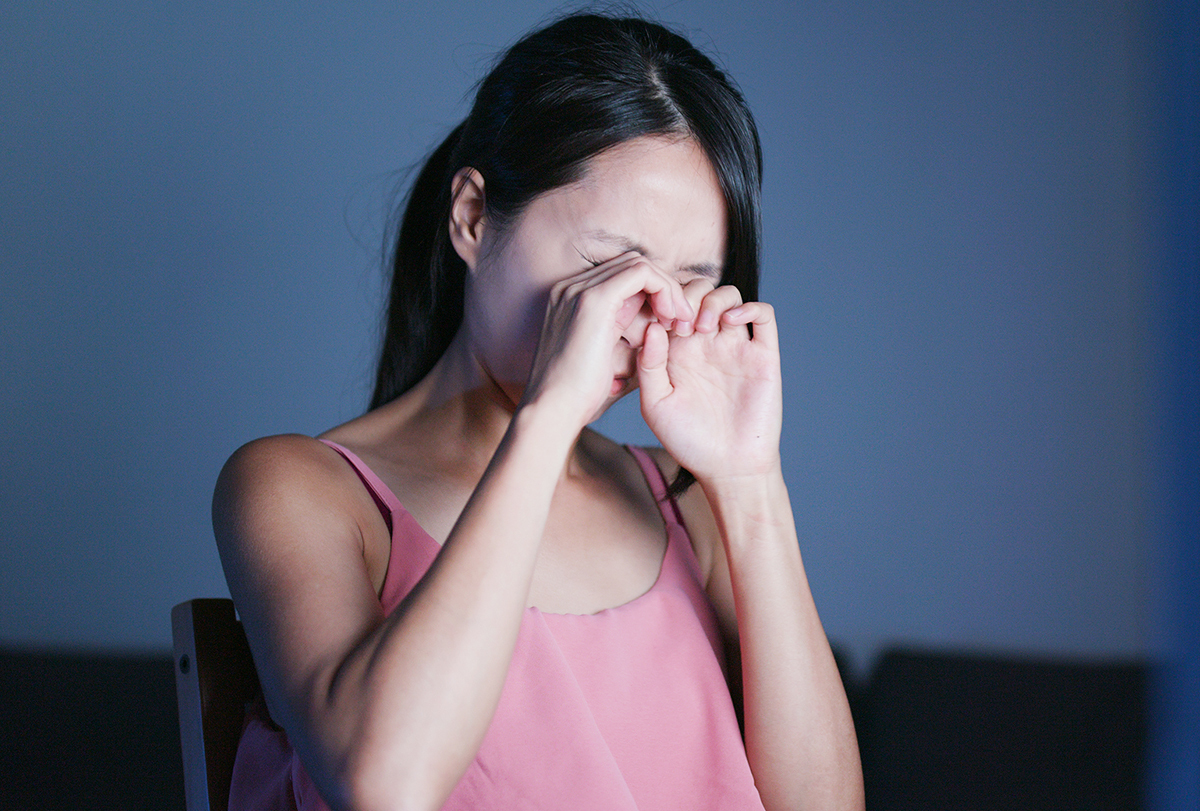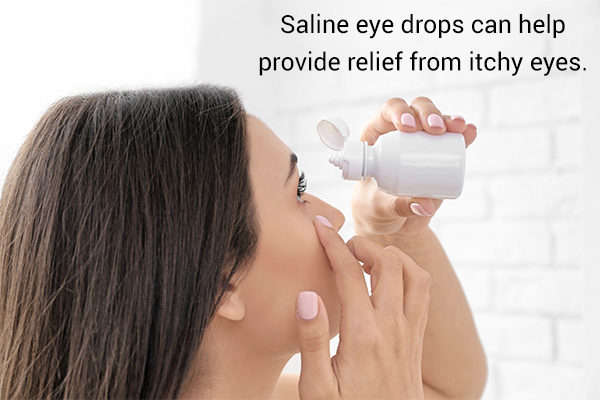In this article:
Medically known as ocular pruritus, itchy eyes are a frequent complaint at ophthalmologists’ offices.

Although the condition may appear to be an insignificant problem that is sometimes overlooked during a checkup, it can be a constant source of discomfort and anxiety to the affected individual.
It is vital to manage the condition, as leaving it untreated can damage sensitive eyes and can result in serious complications that can compromise vision.
Why Do You Get Itchy Eyes?
The most frequent causes of itchy eyes include:
1. Allergic reactions
Both seasonal and perennial allergies can cause problems in the eyes. Allergens, such as dust mites in pillows, grasses, and blooming plants, trigger an immune reaction in the body.
This reaction stimulates the production of antibodies and the release of chemicals, such as histamines, which cause itchiness.
2. Dermatological conditions
Problems such as atopic dermatitis, irritant contact dermatitis, and allergic contact dermatitis can affect the eyelids. (1)
3. Ophthalmologic medications
An adverse reaction to drugs, such as antibiotics and prostaglandin analogs and their components, such as preservatives, can also cause itchy eyes. (1)
Other causes that can lead to itchy eyes include:
- Dry eye syndrome, which refers to diminished moisture in the eye due to a lack of tear production (2)
- Infection as a result of improper use of contact lenses
- Common cold
- Use of expired cosmetics
- Improper eye hygiene
- A foreign particle or chemical in the eye
- Prolonged screen time, which can also result in blurred vision and headaches
- Medications such as antihistamines, antidepressants, birth control pills, and painkillers
- Blepharitis, or an infection that causes swelling of the eyelids (contact dermatoblepharitis)
- Meibomian gland dysfunction
- Giant papillary conjunctivitis
- Allergic conjunctivitis (Non-allergic irritations may produce symptoms similar to allergic conjunctivitis; ocular itching is the differentiating factor that supports the diagnosis of allergic conjunctivitis.) (3)
Symptoms Associated With Itchy Eyes
Itchy eyes are typically a manifestation of an underlying condition and are accompanied by other symptoms, such as:
- Light sensitivity
- Dryness
- Watery eyes
- Swollen eyelids
Itchy eyes are often more noticeable at nighttime. Frequently rubbing your eyes or entering a highly polluted environment can aggravate the condition.
What to Do About Itchy Eyes?

The treatment method for itchy eyes depends on the underlying cause. Therefore, consult a doctor for the appropriate solution, especially if you have severe and recurrent problems.
1. Eye drops and medications
Saline eye drops can help provide relief from itchy eyes. However, it is important to choose the right OTC eye drop, as decongestant eye drops can aggravate the situation. You may ask your doctor for the OTC eye drop you can use.
Additionally, for allergy-caused itchiness, you may use antihistamine pills along with eye drops. If the condition persists, consult your doctor for prescription eye drops suitable for your condition.
The following medications may also be prescribed: (3)
- Mast-cell stabilizers
- Corticosteroids
- Nonsteroidal anti-inflammatory drugs (NSAIDs)
2. Rinsing
Rinsing your eyes with fresh water and wiping the lashes and eyelids with a wet washcloth help clear dirt and pollen from your eyes, thus providing relief. It is important to use room-temperature water since hot water can aggravate the condition.
3. Artificial tears
Periodic use of artificial tears can help remove the environmental allergens and other factors that cause the eye itching. They are available in the form of both prescription and O-T-C eye drops, but you must look for products that don’t contain any potential allergens or chemicals.
The easiest option is to use non-preservative OTC products, as preservatives can cause sensitivity or allergy and, therefore may worsen the symptoms. But if your condition fails to improve, ask your doctor to prescribe you something stronger.
Diagnosing the Condition
Because itchy eyes can be a sign of various medical conditions, a proper, timely diagnosis is necessary. For this, the doctor will observe your symptoms and take a thorough history, including:
- Onset, duration, and frequency of symptoms
- Aggravating factors
- Associated systemic complaints
When to See a Doctor
Although itchy eyes are usually a mild problem and does not have any serious complications yet it is imperative to seek medical attention in the following cases:
- The problem lasts for more than a day or two
- The itchiness occurs without the presence of known irritants
- The itching is accompanied by redness
- Vision is affected
- Eye pain occurs
If the itchiness in your eyes is accompanied by a full-body itch, the cause may be systemic, such as an allergy, and you will be referred to an allergist.
Final Word
The eyes are among the most delicate organs of the body that require gentle care to avoid damage. Constantly rubbing your eyes may provide immediate relief, but it is harmful in the long run. The friction can rupture the cornea and compromise your vision in case of extreme damage.
If you wish to relieve itchy eyes without incurring any additional eye damage, it is important to follow the eye care guidelines prescribed by your ophthalmologist.
You may have to go for frequent follow-up checkups to check if you are responding well to the treatment. The doctor will check for signs of infection, perforation, swelling, or any other potential problem that may arise as a side effect to your medications.

- Was this article helpful?
- YES, THANKS!NOT REALLY


